China Arts & Entertainment
Top 10 Chinese Celebrities with the Most Followers on Weibo in 2021
The top celebrities with the most followers on social media – who are they, why are they famous, and what do they do?
Published
4 years agoon
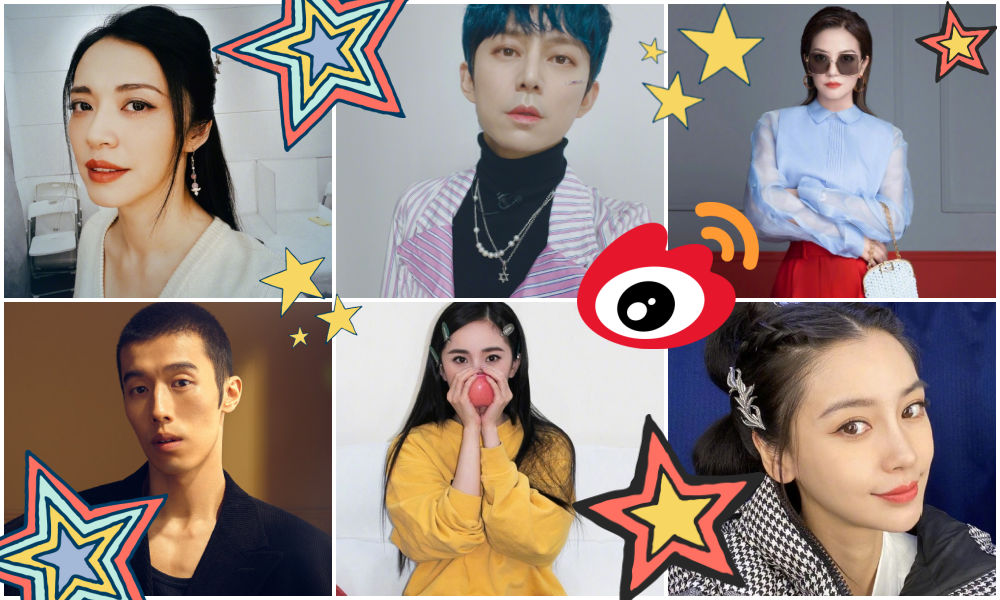
They are the crème de la crème of China’s giant pop entertainment scene. These are the top celebrities and influencers on Weibo in early 2021.
This is the “WE…WEI…WHAT?” column by Manya Koetse, original publication in German by Goethe Institut China, see Goethe.de: WE…WEI…WHAT? Manya Koetse erklärt das chinesische Internet.
While celebrities such as Justin Bieber, Barack Obama, and Katy Perry are the leaders of Twitter in terms of followers, there are Chinese celebrities with an equally large fanbase on the country’s biggest social media platform Weibo, yet these are names that are generally less well-known outside of China.
Although China’s social media landscape has seen the rising popularity of new social apps and sites, Weibo is still the number one platform for the entertainment industry. This is a list of Weibo celebrities with the most followers as of early 2021.
There are some things worth noting about this list. First, it does not contain any ‘internet celebrities’ (网红 wanghong), meaning people who have become self-made online influencers through the internet. The biggest Weibo stars are still the ‘traditional celebrities’ in the sense that they have made their big breakthrough through TV drama, cinema, or the mainstream pop music scene.
Second, although the top list of Chinese celebrities with the most followers on Weibo has changed somewhat throughout the years, many of these celebrities have been at the top for a long time already. Some of them simply have become so big on Weibo because they were among the first celebrities to join the platform since its beginning in 2009. Celebrities such as Yao Chen or Chen Kun already had over 50 million followers on Weibo in 2013. This indicates that while China’s social media landscape is becoming more diverse, it is also more difficult for new social media superstars to emerge and become bigger than the long-time Weibo champions.
Third, the most-followed celebrities on Chinese social media are often true ‘superstars’ in the sense that they are all incredibly versatile. They often do acting, singing, presenting, but also have their own (restaurant) business or engage in other activities as ‘celebrity entrepreneurs.’ Virtually all celebrities in this list are also active contributors to charity or represent a good cause, as well as being brand ambassadors – they often have lucrative deals to do advertisements for world-renowned brands, from fashion brands to cosmetics or high-end spirits. This multidimensionality makes these celebrities all the more appealing to fans: they are talented, beautiful, wealthy, fashionable, virtuous and successful in business.
This article first introduces the ten Weibo accounts with the highest number of followers, and then also includes some newer accounts with the highest “influence rate” (博主影响力) according to Weibo Charts, meaning they have high network interaction and follower growth.
1. Xie Na 谢娜 – The Queen of Weibo

Fans on Weibo: 129.4 million followers, @谢娜
Main occupation: TV host
Date of birth: 6 May 1981
Birthplace: Deyang, Sichuan
Xie Na (1981), also nicknamed ‘Nana,’ is an extremely popular Chinese presenter, singer, actress and designer who is also known as ‘the Queen of Weibo.’
One of the reasons she has become so famous in mainland China is that she is the co-host of Hunan Satellite TV’s Happy Camp (快乐大本管), one of China’s most popular variety shows that has been running since 1997. She presents the show together with, amongst others, colleague He Jiong, who also appears in this list.
But ‘Nana’ is also very popular because she is such a versatile celebrity. Besides hosting various variety TV shows and starring in many popular Chinese films and television series, she has also released several albums, founded a personal clothing line, and published two books. Xie Na made headlines in March 2017 when she announced she would go to Italy as an overseas student to study design.
The TV host also stars in various commercials. She is, for example, the Chinese brand ambassador for American skin care brand Olay.
Xie Na holds the official Guinness World Record as the First Person to Accumulate 100 Million Followers on Weibo and for having the Most followers on Weibo.
In January of 2021, the 39-year-old Xie Na announced her second pregnancy together with her husband Zhang Jie, with whom she has been together for ten years. If you’re not on Weibo, you can also find Xie Na on Instagram here, where she has 485.000 followers.
2. He Jiong 何炅 – Key Figure in China’s Entertainment Industry
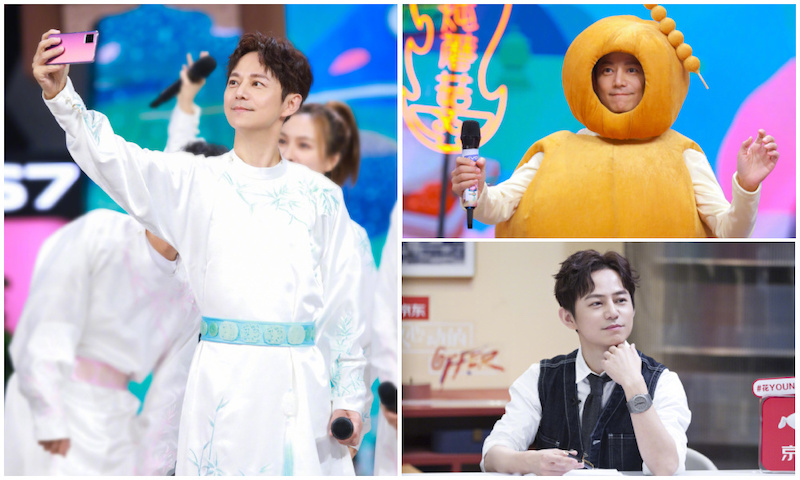
Fans on Weibo: 120.6 million followers, @何炅
Main occupation: TV host
Date of birth: 28 April 1974
Birthplace: Changsha, Hunan
He Jiong has been the host of China’s popular Happy Camp TV show for over two decades. He is also a singer, actor, writer, and used to be an Arabic teacher at Beijing’s Foreign Studies University, which is why he is often nicknamed ‘Professor He’ (何老师). Chinese media have called He Jiong “a key figure in China’s entertainment industry.”
Like Xie Na, He Jiong made it to the Guinness Book of Records for being the male celebrity with the most Weibo followers.
He Jiong recently was criticized for ‘exploiting his fame’ when it became known that he was accepting lavish gifts from fans, together with other hosts at Hunan Satellite TV. The broadcaster later stated that they would no longer allow any of their staff to receive gifts from fans, and He Jiong also wrote on Weibo that he would decline all presents in the future.
3. Yang Mi 杨幂 – One of the Most Bankable Female Stars

Fans on Weibo: 109.8 million fans on Weibo @杨幂
Main occupation: Actress
Date of birth: 12 September 1986
Birthplace: Beijing
The beautiful actress and singer Yang Mi (1986) gained fame and popularity through her various roles in Chinese hit TV dramas. Born in Beijing, Yang started her acting career at the age of 4. Yang starred in many successful films and tv dramas, including hit shows such as Eternal Love (三生三世十里桃花) and The Interpreters (亲爱的翻译官), which happen to be produced by Yang’s own media company Jay Walk Studio.
Yang is now seen as one of Chinas biggest actresses, and also as one with the most commercial value; she was listed in the Top 10 Forbes Chinese Celebrities of 2020. Yang was previously named as one of China’s “New Four Dan Actresses” (the ‘top 4’ actresses).
Besides her acting career, entrepreneurship, and charity efforts, Yang Mi is also active as a brand ambassador for various renowned fashion and skincare brands, including Estee Lauder, Michael Kors and Victoria’s Secret.
This year, the actress will star in the live action movie A Writer’s Odyssey by director Lu Yang.
Yang has a daughter and was previously married to Hong Kong actor and singer Hawick Lau How-wai, with whom she co-starred in various productions. They announced their divorce in 2018. Fun fact: Yang Mi’s dad is also active on Weibo (@休闲小林哥), where he rebutted ongoing rumors about Yang undergoing plastic surgery by sharing her childhood photos. Though not as impressive as his daughter’s, his fanbase of 364,000 followers is still relatively big. Yang Mi is also active on Instagram here.
4. Angelababy 杨颖 – A Household Name

Fans on Weibo: 103.3 million followers @angelababy
Main occupation: Actress
Date of birth: 28 February 1989
Birthplace: Shanghai
‘Angelababy’ (nickname for Yang Ying aka Angela Yeung Wing) has practically become a household name in China over the past years. The award-winning actress, model, and singer started her acting career in 2007 and has taken on many roles in different movies and TV dramas since.
The famous actress married actor Huang Xiaoming (黄晓明) in 2015, with whom she has a son. Their lavish $31 million wedding is the most-discussed Chinese weddings of the past decade, and their marriage and relationship status is a popular gossip topic on social media. There are ongoing rumors that the two might already have separated.
Angelababy is the brand ambassador for Dior. She recently opened her own hotpot restaurant named ‘Douliu Hotpot’ (斗鎏火锅) in Chengdu. She is also involved in charity and has previously donated to hospital relief efforts related to the COVID19 crisis in Hubei.
You can also find Angelababy on Instagram, where she has 8.1 million followers.
5. Chen Kun 陈坤 – With Love from Chongqing

Fans on Weibo: 93.3 million fans @陈坤
Main occupation: Actor and singer
Date of birth: 4 February 1976
Birthplace: Chongqing
Chinese top actor, singer and writer Chen Kun, sometimes also credited as Aloys Chen, is known for his roles in many television dramas and movies. The award-winning actor starred in popular TV dramas such as Love Story in Shanghai (像雾像雨又像风) and The Story of a Noble Family (金粉世家), as well as many movies including the 2016 comedy Chongqing Hotpot (火锅英雄) that is set in his hometown. Internationally, he mainly gained recognition for his role in Painted Skin (2008).
Chen belongs to the same generation of Beijing Film Academy graduates as his former classmate Vicki Zhao, who also appears in this list, and Huang Xiaoming, Angelababy’s husband.
Chen Kun is not only popular because of his acting work, but also for his looks – he is known to have a large gay fanbase. He is not shy about his looks, and likes to post a lot of photos of himself on his Weibo page.
Chen is a brand ambassador for Braun, Italian fashion house Prada, and was recently also featured in the campaign for French Cognac brand Martell Noblige. He is also active in charity and is a global ambassador for WildAid. He also founded ‘Power to Go,’ an initiative that aims to encourage people to improve their health and spirit by leading a more energetic lifestyle.
6. Zhao Liying 赵丽颖 – An Audience Favorite

Fans on Weibo: 88.4 million followers on Weibo @赵丽颖
Main occupation: Actress
Date of birth: 16 October 1987
Birthplace: Langfang, Hebei
The award-winning actress and singer Zhao Liying, also known as Zanilia Zhao, is an audience favorite in China. Her acting career started some fifteen years ago but Zhao mainly gained recognition when she starred in 2010 Chinese television series The Dream of Red Mansions (红楼梦) and then played the main role in the 2013 popular series Legend of Lu Zhen (陆贞传奇). In 2017, she starred in the film Duckweed (乘风破浪), directed by Han Han.
Zhao is a tourism ambassador for her home province of Hebei, and she is the brand ambassador for fashion house Dior. Like others in this list, the actress was included in the top 10 of Forbes China Top Celebrity List for 2020.
7. Jackson Yee 易烊千玺 – Teen Idol with Power Star Status
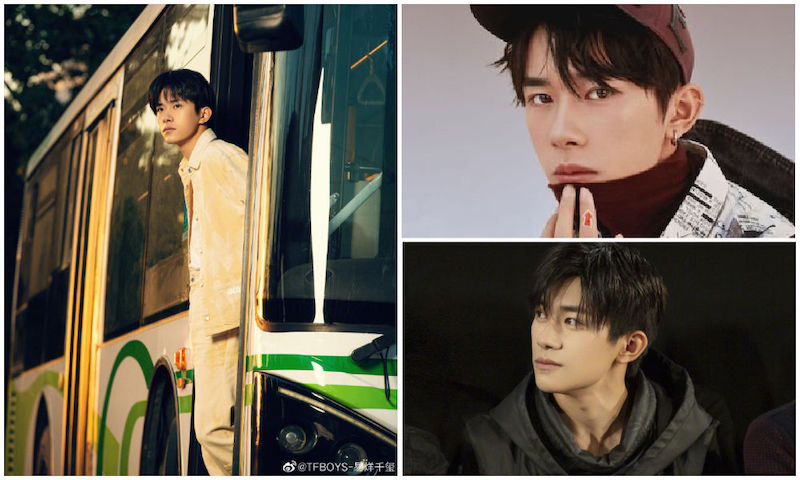
Fans on Weibo: 86.9 million followers on Weibo @TFBOYS-易烊千玺
Main occupation: Singer/dancer with boyband TF Boys
Date of birth: 28 November 2000
Birthplace: Huaihua, Hunan
Although he is a ‘newcomer’ compared to other celebrities in this list, Jackson Yee (Yi Yangqianxi) is one of the most popular Chinese celebrities of the moment. Debuting as a child star, he is a member of China’s hugely popular band TFBoys and was recently included in the Forbes list of “Asia’s 100 Digital Stars” and ranked first in the 2020 Forbes Chinese Celebrity list. The 19-year-old singer-actor also is the number one blogger with the most influence on Weibo at the time of writing, according to Chinese social media data platform Xiguaji.
Besides a band member and solo singer, he is also an actor ad starred in the movie Better Days (2019), for which he won the Hong Kong Film Award for Best New Performer. He also stars in the box office hit A Little Red Flower (2020).
Yee is the global brand ambassador for Armani, and also works for brands such as Bulgari, Tiffany & Co, and Adidas.
8. Vicki Zhao 赵薇 – China’s Billionaire Actress

Fans on Weibo: 85.8 million followers on Weibo @赵薇
Main occupation: Actress
Date of birth: 12 March 1976
Birthplace: Wuhui, Anhui
Vicki Zhao is a Chinese film star, singer, entrepreneur, and director. She is also known for her work as the face for various brands (Samsung, Burberry, Fendi), which has added to her wealth: she was previously named as China’s richest actress and even as one of the world’s wealthiest working actresses.
But above all, Zhao is one of China’s most famous actresses. She starred in the highly successful Chinese costume television show My Fair Princess (還珠格格) which first aired in 1998, after which she went on to star in many TV series and big films, including Painted Skin (2008) and Lost in Hong Kong (2015). Together with actresses Zhang Ziyi, Zhou Xun and Xu Jinglei, Zhao was named as one of China’s ‘Four Dan Actresses’ (四大花旦, the four greatest actresses of mainland China) in the early 2000s.
Zhao is known for her work in charity and her efforts for good causes. She is a goodwill ambassador for the United Nations. Zhao is married to Chinese businessman Huang You Long (黄有龙) with whom she has a daughter.
9. Yao Chen 姚晨 – “China’s Answer to Angelina Jolie”

Fans on Weibo: 84.6 million followers @姚晨
Main occupation: Actress
Date of birth: 5 October 1979
Birthplace: Quanzhou, Fujian
Fujian-born Yao Chen is a Chinese actress and Weibo celebrity, who was previously mentioned as one of the 100 most powerful women in the world by Forbes magazine. Speaking out about social issues and being the first-ever Chinese UNHCR Goodwill Ambassador, she has also been called ‘China’s answer to Angelina Jolie.’
Yao Chen is not necessarily China’s number one actress, but she was one of the first celebrities to share her personal life on Weibo since 2009, and interact with her fans. On Weibo, she talks about her everyday life, family, news-related issues, work, and fashion. She posts personal pictures every day. Yao Chen’s popularity as an actress and philanthropist combined with her frequent Weibo updates and closeness to her fans have made her a huge Weibo celebrity.
Yao has acted as an ambassador for various brands, including Miu Miu, Fendi, and Lululemon.
10. Deng Chao 邓超 – Box Office Hit
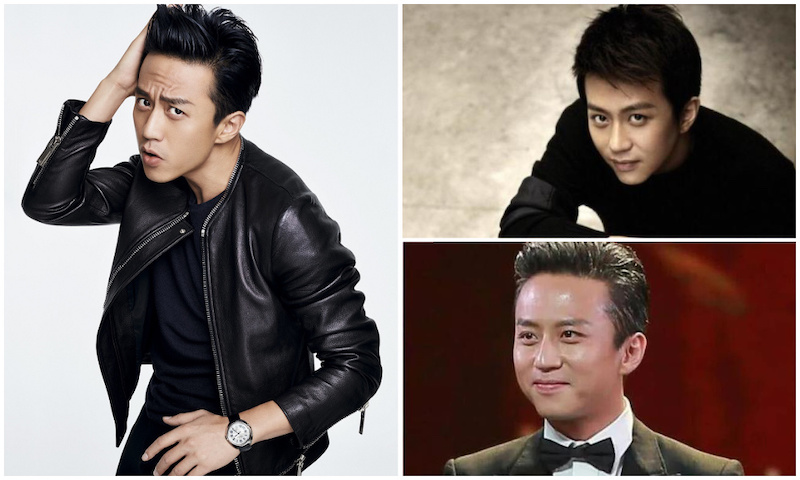
Fans on Weibo: 81,6 million followers on Weibo @邓超
Main occupation: Actor
Date of birth: 8 February 1979
Birthplace: Nanchang, Jiangxi
Deng Chao is an award-winning Chinese actor, director, and singer. He is, amongst others, known for his role in the popular variety program Keep Running (奔跑吧). Many films in which Deng played, such as The Breakup Guru (2014), The Mermaid (2016), Duckweed (2017), and The Sacrifice (2020) have been box-office hits. Deng is one of China’s most favorite actors.
Deng is married to Chinese actress Sun Li (孙俪), also known as Susan Sun, with whom he has two children. Like many other celebrities, the two donated money to contribute to China’s fight against COVID19 in 2020, but received some online criticism when some thought their donation was ‘stingy’ compared to those of others.
Top Influencer: Wang Yibo 王一博
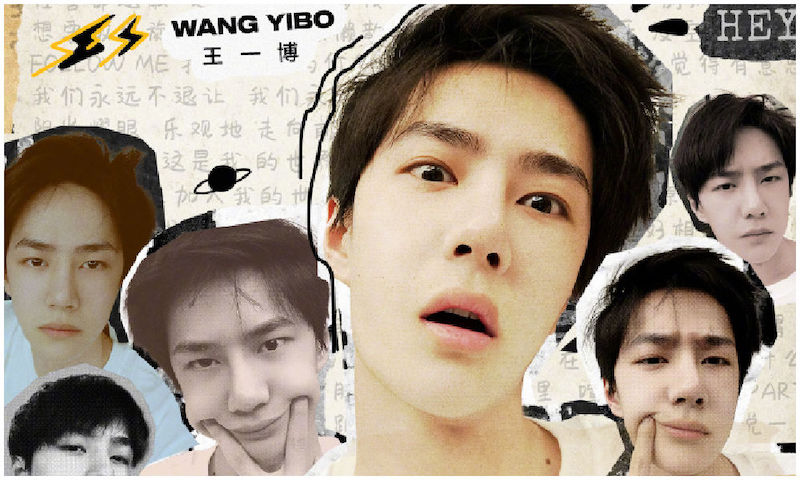
37.3 million followers @UNIQ-王一博
Wang Yibo (1997) is a Chinese actor, singer, dancer, and rapper who debuted as a member of the South Korean-Chinese boyband UNIQ in 2014 and starred in the 2019 Chinese TV series The Untamed (陈情令). On Sina Weibo, the celebrity was the champion of Weibo’s ‘Most Influential Celebrity’ charts in December of 2020 – he has a huge fanbase. Like many other Chinese celebrities, Wang often features in various commercials and represents various brands, including Audi and Swarovski. He also has an Instagram account with 1.9 million followers.
Top Influencer: Wang Junkai 王俊凯
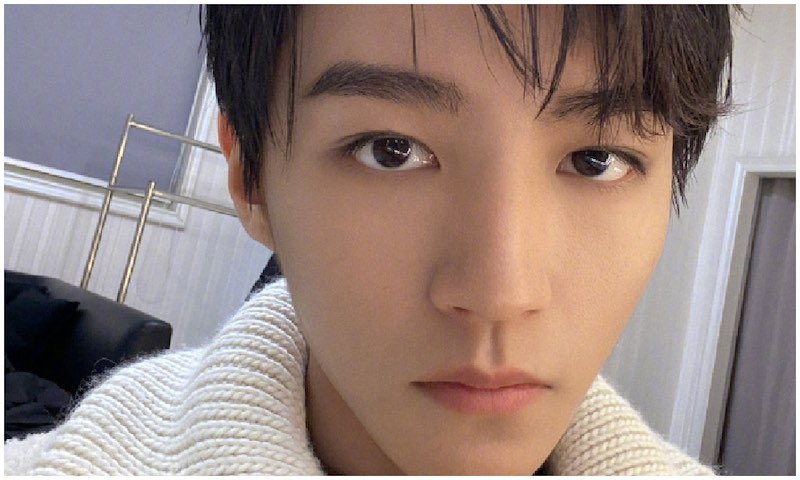
79.4 million followers @TFBOYS-王俊凯
Wang Junkai (1999), also called Karry Wang, is a singer and actor who debuted as the lead member of the super popular group TFBoys in 2013. The boy band consists of three members; besides Wang, there’s Jackson Yee, who is also in this list, and Wang Yuan (王源also known as Roy Wang). The band recently won a Guinness World Record for most-viewed paid concert, which was their live NetEase cloud music concert for which 786,000 fans bought a virtual ticket. Wang Junkai, who also has a thriving career as a solo singer and represent brands like Swatch and Dior, is one of China’s wealthiest people born after 1990.
Top Influencer: Xiao Zhan 肖战
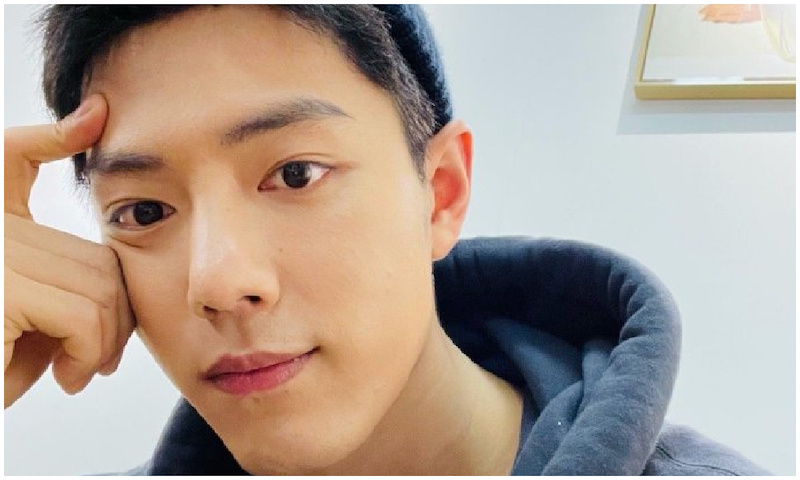
28.2 million followers @X玖少年团肖战DAYTOY
Xiao Zhan (1991), also known as Sean Xiao, is one of the hottest Weibo bloggers at this time who consistently ranks first lately in daily ranking concerning most influential and most interaction. Xiao is an actor and singer who co-stars in The Untamed (陈情令) together with Wang Yibo. Xiao Zhan and Wang Yibo are super popular within fan fiction communities, where boys’ love fans imagine a romantic relationship between the two – which is not always appreciated by fans of Xiao Zhan.
By Manya Koetse
Follow @whatsonweibo
This text was written for Goethe-Institut China under a CC-BY-NC-ND-4.0-DE license (Creative Commons) as part of a monthly column in collaboration with What’s On Weibo.
Spotted a mistake or want to add something? Please let us know in comments below or email us. First-time commenters, please be patient – we will have to manually approve your comment before it appears.
Manya is the founder and editor-in-chief of What's on Weibo, offering independent analysis of social trends, online media, and digital culture in China for over a decade. Subscribe to gain access to content, including the Weibo Watch newsletter, which provides deeper insights into the China trends that matter. More about Manya at manyakoetse.com or follow on X.

China Arts & Entertainment
How K-pop Fans and the 13-Year-Old Daughter of Baidu VP Sparked a Debate on Online Privacy
What began as K-pop fan outrage targeting a snarky commenter quickly escalated into a Baidu-linked scandal and a broader conversation about data privacy on Chinese social media.
Published
4 days agoon
March 26, 2025By
Ruixin Zhang
For an ordinary person with just a few followers, a Weibo account can sometimes be like a refuge from real life—almost like a private space on a public platform—where, along with millions of others, they can express dissatisfaction about daily annoyances or vent frustration about personal life situations.
But over recent years, even the most ordinary social media users could become victims of “opening the box” (开盒 kāihé)—the Chinese internet term for doxxing, meaning the deliberate leaking of personal information to expose or harass someone online.
A K-pop Fan-Led Online Witch Hunt
On March 12, a Chinese social media account focusing on K-pop content, Yuanqi Taopu Xuanshou (@元气桃浦选手), posted about Jang Wonyoung, a popular member of the Korean girl group IVE. As the South Korean singer and model attended Paris Fashion Week and then flew back the same day, the account suggested she was on a “crazy schedule.”
In the comment section, one female Weibo user nicknamed “Charihe” replied:
💬 “It’s a 12-hour flight and it’s not like she’s flying the plane herself. Isn’t sleeping in business class considered resting? Who says she can’t rest? What are you actually talking about by calling this a ‘crazy schedule’..”

Although the comment may have come across as a bit snarky, it was generally lighthearted and harmless. Yet unexpectedly, it brought disaster upon her.
That very evening, the woman nicknamed Charihe was bombarded with direct messages filled with insults from fans of Jang Wonyoung and IVE.
Ironically, Charihe’s profile showed she was anything but a hater of the pop star—her Weibo page included multiple posts praising Wonyoung’s beauty and charm. But that context was ignored by overzealous fans, who combed through her social media accounts looking for other posts to criticize, framing her as a terrible person.
After discovering through Charihe’s account that she was pregnant, Jang Wonyoung’s fans escalated their attacks by targeting her unborn child with insults.
The harassment did not stop there. Around midnight, fans doxxed Charihe, exposing her personal information, workplace, and the contact details of her family and friends. Her friends were flooded with messages, and some were even targeted at their workplaces.
Then, they tracked down Charihe’s husband’s WeChat account, sent him screenshots of her posts, and encouraged him to “physically punish” her.
The extremity of the online harassment finally drew backlash from netizens, who expressed concern for this ordinary pregnant woman’s situation:
💬 “Her entire life was exposed to people she never wanted to know about.”
💬 “Suffering this kind of attack during pregnancy is truly an undeserved disaster.”
Despite condemnation of the hate, some extreme self-proclaimed “fans” remained relentless in the online witch hunt against Charihe.
Baidu Takes a Hit After VP’s 13-Year-Old Daughter Is Exposed
One female fan, nicknamed “YourEyes” (@你的眼眸是世界上最小的湖泊), soon started doxxing commenters who had defended her. The speed and efficiency of these attacks left many stunned at just how easy it apparently is to trace social media users and doxx them.
Digging into old Weibo posts from the “YourEyes” account, people found she had repeatedly doxxed people on social media since last year, using various alt accounts.
She had previously also shared information claiming to study in Canada and boasted about her father’s monthly salary of 220,000 RMB (approx. $30.3K), along with a photo of a confirmation document.
Piecing together the clues, online sleuths finally identified her as the daughter of Xie Guangjun (谢广军), Vice President of Baidu.
From an online hate campaign against an innocent, snarky commenter, the case then became a headline in Chinese state media, and even made international headlines, after it was confirmed that the user “YourEyes”—who had been so quick to dig up others’ personal details—was in fact the 13-year-old daughter of Xie Guangjun, vice president at one of China’s biggest tech giants.
On March 17, Xie Guangjun posted the following apology to his WeChat Moments:

💬 “Recently, my 13-year-old daughter got into an online dispute. Losing control of her emotions, she published other people’s private information from overseas social platforms onto her own account. This led to her own personal information also getting exposed, triggering widespread negative discussion.
As her father, I failed to detect the problem in time and failed to guide her in how to properly handle the situation. I did not teach her the importance of respecting and protecting the privacy of others and of herself, for which I feel deep regret.
In response to this incident, I have communicated with my daughter and sternly criticized her actions. I hereby sincerely apologize to all friends affected.
As a minor, my daughter’s emotional and cognitive maturity is still developing. In a moment of impulsiveness, she made a wrong decision that hurt others and, at the same time, found herself caught in a storm of controversy that has subjected her to pressure and distress far beyond her age.
Here, I respectfully ask everyone to stop spreading related content and to give her the opportunity to correct her mistakes and grow.
Once again, I extend my apologies, and I sincerely thank everyone for your understanding and kindness.”
The public response to Xie’s apology has been largely negative. Many criticized the fact that it was posted privately on WeChat Moments rather than shared on a public platform like Weibo. Some dismissed the statement as an attempt to pacify Baidu shareholders and colleagues rather than take real accountability.
Netizens also pointed out that the apology avoided addressing the core issue of doxxing. Concerns were raised about whether Xie’s position at Baidu—and potential access to sensitive information—may have helped his daughter acquire the data she used to doxx others.
Adding fuel to the speculation were past conversations allegedly involving one of @YourEyes’ alt accounts. In one exchange, when asked “Who are you doxxing next?” she replied, “My parents provided the info,” with a friend adding, “The Baidu database can doxx your entire family.”
Following an internal investigation, Baidu’s head of security, Chen Yang (陈洋), stated on the company’s internal forum that Xie Guangjun’s daughter did not obtain data from Baidu but from “overseas sources.”
However, this clarification did little to reassure the public—and Baidu’s reputation has taken a hit. The company has faced prior scandals, most notably a the 2016 controversy over profiting from misleading medical advertisements.
Online Vulnerability
Beyond Baidu’s involvement, the incident reignited wider concerns about online privacy in China. “Even if it didn’t come from Baidu,” one user wrote, “the fact that a 13-year-old can access such personal information about strangers is terrifying.”
Using the hashtag “Reporter buys own confidential data” (#记者买到了自己的秘密#), Chinese media outlet Southern Metropolis Daily (@南方都市报) recently reported that China’s gray market for personal data has grown significantly. For just 300 RMB ($41), their journalist was able to purchase their own household registration data.
Further investigation uncovered underground networks that claim to cooperate with police, offering a “70-30 profit split” on data transactions.
These illegal data practices are not just connected to doxxing but also to widespread online fraud.
In response, some netizens have begun sharing guides on how to protect oneself from doxxing. For example, they recommend people disable phone number search on apps like WeChat and Alipay, hide their real name in settings, and avoid adding strangers, especially if they are active in fan communities.
Amid the chaos, K-pop fan wars continue to rage online. But some voices—such as influencer Jingzai (@一个特别虚荣的人)—have pointed out that the real issue isn’t fandom, but the deeper problem of data security.
💬 “You should question Baidu, question the telecom giants, question the government, and only then, fight over which fan group started this.”
As for ‘Charihe,’ whose comment sparked it all—her account is now gone. Her username has become a hashtag. For some, it’s still a target for online abuse. For others, it is a reminder of just how vulnerable every user is in a world where digital privacy is far from guaranteed.
By Ruixin Zhang
Independently covering digital China for over a decade. Like what we do? Support us and get the story behind the hashtag by subscribing:
edited for clarity by Manya Koetse
Spotted a mistake or want to add something? Please let us know in comments below or email us. First-time commenters, please be patient – we will have to manually approve your comment before it appears.
©2024 Whatsonweibo. All rights reserved. Do not reproduce our content without permission – you can contact us at info@whatsonweibo.com.
China Memes & Viral
How Ne Zha 2’s Shen Gongbao Became Known as the Ultimate “Small-Town Swot”
Published
4 weeks agoon
March 1, 2025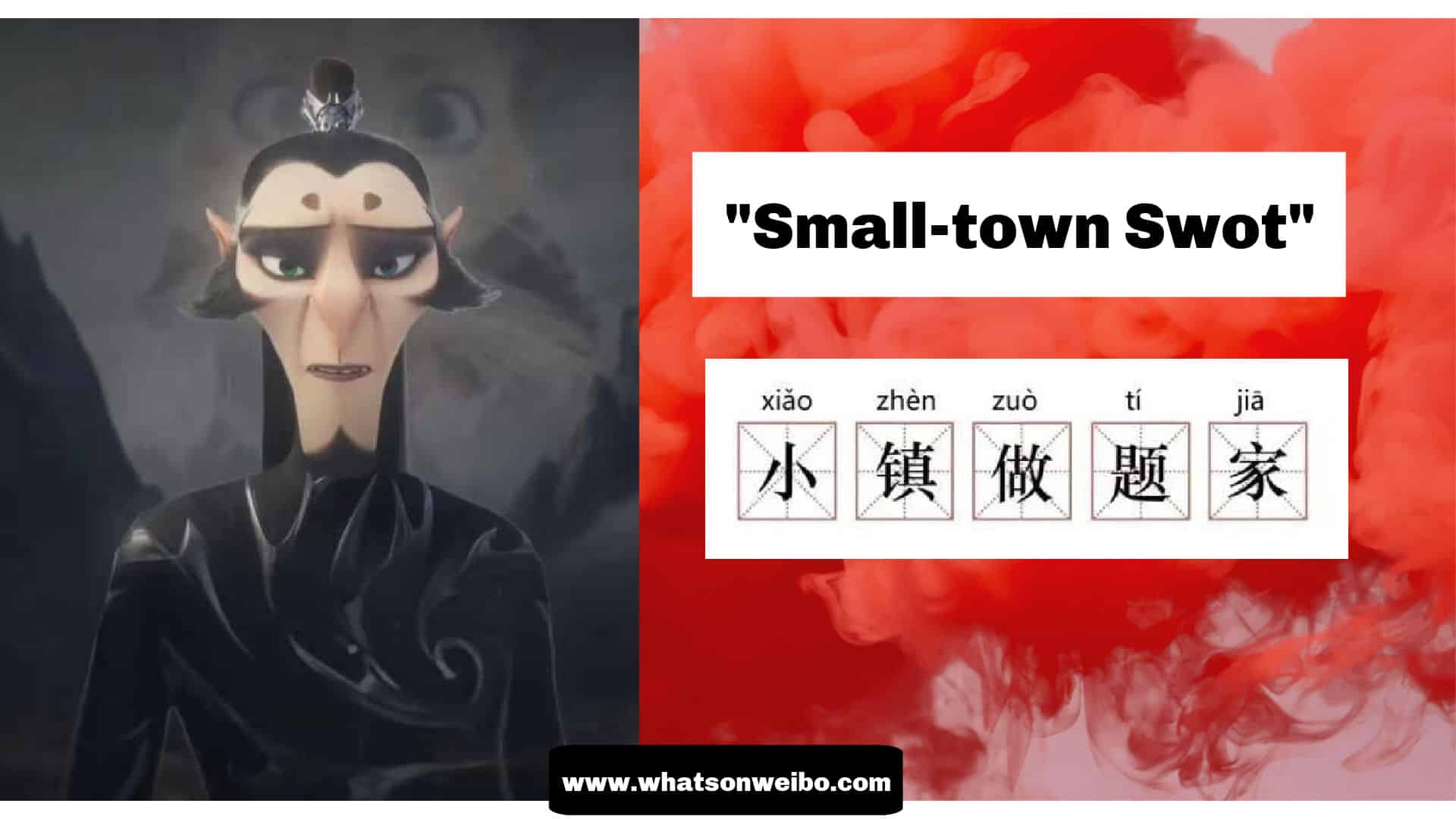
PART OF THIS TEXT COMES FROM THE WEIBO WATCH PREMIUM NEWSLETTER
Over the past few weeks, the Chinese blockbuster Ne Zha 2 has been trending on Weibo every single day. The movie, loosely based on Chinese mythology and the Chinese canonical novel Investiture of the Gods (封神演义), has triggered all kinds of memes and discussions on Chinese social media (read more here and here).
One of the most beloved characters is the leopard demon Shen Gongbao (申公豹). While Shen Gongbao was a more typical villain in the first film, the narrative of Ne Zha 2 adds more nuance and complexity to his character. By exploring his struggles, the film makes him more relatable and sympathetic.
In the movie, Shen is portrayed as a sometimes sinister and tragic villain with humorous and likeable traits. He has a stutter, and a deep desire to earn recognition. Unlike many celestial figures in the film, Shen Gongbao was not born into privilege and never became immortal. As a demon who ascended to the divine court, he remains at the lower rungs of the hierarchy in Chinese mythology. He is a hardworking overachiever who perhaps turned into a villain due to being treated unfairly.
Many viewers resonate with him because, despite his diligence, he will never be like the gods and immortals around him. Many Chinese netizens suggest that Shen Gongbao represents the experience of many “small-town swots” (xiǎozhèn zuòtíjiā 小镇做题家) in China.
“Small-town swot” is a buzzword that has appeared on Chinese social media over the past few years. According to Baike, it first popped up on a Douban forum dedicated to discussing the struggles of students from China’s top universities. Although the term has been part of social media language since 2020, it has recently come back into the spotlight due to Shen Gongbao.
“Small-town swot” refers to students from rural areas and small towns in China who put in immense effort to secure a place at a top university and move to bigger cities. While they may excel academically, even ranking as top scorers, they often find they lack the same social advantages, connections, and networking opportunities as their urban peers.
The idea that they remain at a disadvantage despite working so hard leads to frustration and anxiety—it seems they will never truly escape their background. In a way, it reflects a deeper aspect of China’s rural-urban divide.
Some people on Weibo, like Chinese documentary director and blogger Bianren Guowei (@汴人郭威), try to translate Shen Gongbao’s legendary narrative to a modern Chinese immigrant situation, and imagine that in today’s China, he’d be the guy who trusts in his hard work and intelligence to get into a prestigious school, pass the TOEFL, obtain a green card, and then work in Silicon Valley or on Wall Street. Meanwhile, as a filial son and good brother, he’d save up his “celestial pills” (US dollars) to send home to his family.
Another popular blogger (@痴史) wrote:
“I just finished watching Ne Zha and my wife asked me, why do so many people sympathize with Shen Gongbao? I said, I’ll give you an example to make you understand. Shen Gongbao spent years painstakingly accumulating just six immortal pills (xiāndān 仙丹), while the celestial beings could have 9,000 in their hand just like that.
It’s like saving up money from scatch for years just to buy a gold bracelet, only to realize that the trash bins of the rich people are made of gold, and even the wires in their homes are made of gold. It’s like working tirelessly for years to save up 60,000 yuan ($8230), while someone else can effortlessly pull out 90 million ($12.3 million).In the Heavenly Palace, a single meal costs more than an ordinary person’s lifetime earnings.
Shen Gongbao seems to be his father’s pride, he’s a role model to his little brother, and he’s the hope of his entire village. Yet, despite all his diligence and effort, in the celestial realm, he’s nothing more than a marginal figure. Shen Gongbao is not a villain, he is just the epitome of all of us ordinary people. It is because he represents the state of most of us normal people, that he receives so much empathy.”
In the end, in the eyes of many, Shen Gongbao is the ultimate small-town swot. As a result, he has temporarily become China’s most beloved villain.
By Manya Koetse, with contributions by Wendy Huang
Follow @whatsonweibo
Spotted a mistake or want to add something? Please let us know in comments below or email us. Please note that your comment below will need to be manually approved if you’re a first-time poster here.
©2025 Whatsonweibo. All rights reserved. Do not reproduce our content without permission – you can contact us at info@whatsonweibo.com
Subscribe

How K-pop Fans and the 13-Year-Old Daughter of Baidu VP Sparked a Debate on Online Privacy

Squat or Sit? China’s Great Toilet Debate and the Problem of Footprints on the Seat

Weibo Watch: The Great Squat vs Sitting Toilet Debate in China🧻

Chinese Netizens Turn to Tim Cook Over Battery Factory’s Illegal Overtime

Revisiting China’s Most Viral Resignation Letter: “The World Is So Big, I Want to Go and See It”

Our Picks: Top 10 Chinese Buzzwords and Phrases of 2024 Explained

“Dear Li Hua”: The TikTok/Xiaohongshu Honeymoon Explained

Beyond the Box Office: What’s Behind Ne Zha 2’s Success?

Weibo Watch: Christmas in China Is Everywhere and Nowhere

Weibo Watch: A New Chapter

15 Years of Weibo: The Evolution of China’s Social Media Giant

Tuning Into the Year of the Snake

The ‘China-chic Girl’ Image and the Realities of China’s Competitive Food Delivery Market

TikTok Refugees, Xiaohongshu, and the Letters from Li Hua

“Black Myth: Wukong”: From Gaming Screens to the CMG Spring Festival Gala?
Get in touch
Would you like to become a contributor, or do you have any tips or suggestions? Get in touch here!
Popular Reads
-

 China Insight11 months ago
China Insight11 months agoThe Tragic Story of “Fat Cat”: How a Chinese Gamer’s Suicide Went Viral
-

 China Music12 months ago
China Music12 months agoThe Chinese Viral TikTok Song Explained (No, It’s Not About Samsung)
-

 China Digital10 months ago
China Digital10 months agoChina’s 2024 Gaokao Triggers Online Discussions on AI
-

 China Arts & Entertainment11 months ago
China Arts & Entertainment11 months agoSinging Competition or Patriotic Fight? Hunan TV’s ‘Singer 2024’ Stirs Nationalistic Sentiments







Almond
June 13, 2021 at 7:29 pm
Why don’t you mention his accomplishments, the brands that support him, his career successes, and a thousand other things Xiao Zhan has accomplished instead of his past controversies or his fan fictions? You have no excuse. Wang Yibo is also involved in these fan fictions but I don’t see any of that in his description. I’m not saying that you put it there as well, but explain to me why if you speak professionally about everyone, with Sean Xiao you are only looking to damage his reputation with those who do not know him. Are you trying to say that his popularity is only due to that? Or do you want to please the fans? Because I’m a fan of both him and the fan fictions, and I’m not satisfied at all. It’s not enough saying “his fans don’t like it” because you know what you’re writing, think about how he would feel reading this in a famous website. His career or his influence has nothing to do with what Boys Love fans do in FICTION. What a lack of professionalism and a final review of what you post. You could even add his achievements below that, but you left it like that just to get attention to your article, right? At his cost. Unbelivable.
Shaara
May 20, 2022 at 10:00 pm
“The Untamed” made his name reach people. However, it is not a lie that his controversy gave him a stardom. Before “The Untamed” he worked in average quality productions. After his controversy, he has not been getting good jobs. Wang Yibo on the other hand, is not a good actor, but he has had better opportunities than him. You are just like the fans who hurt Xiao Zhan, look at you, acting irrational, delusional and in a state of denial.